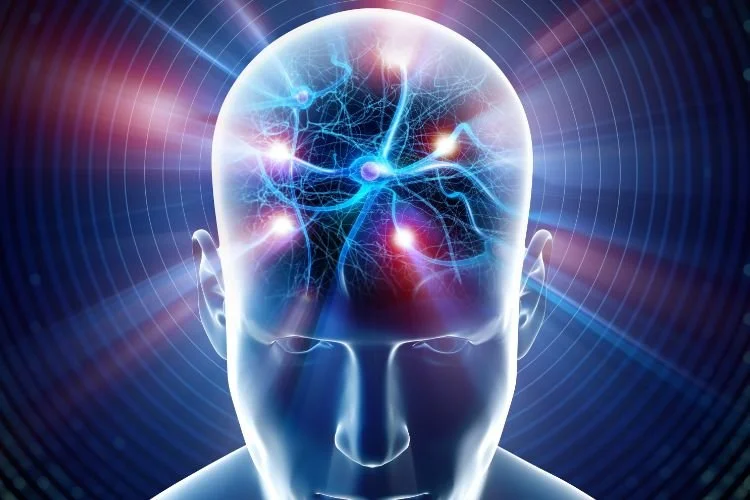Cognitive Assessments: How They Help Track Recovery from Brain Injuries
Recovery from a brain injury is often a long and complex process. Whether caused by a concussion, stroke, or other trauma, brain injuries can impact memory, attention, problem-solving, and overall cognitive function.
At Demuth Spinal Care & Concussion Center, we use advanced cognitive assessments to evaluate brain health and track recovery over time. These assessments provide a clear picture of progress, allowing for personalized treatment plans that address each patient's unique needs.
The Role of Cognitive Assessments in Brain Injury Recovery
Brain injuries often disrupt the normal functioning of neural pathways, leading to cognitive impairments. Cognitive assessments are designed to measure key mental functions such as memory, attention, and decision-making.
By identifying areas of weakness, these assessments offer critical insights into the extent of the injury and the effectiveness of rehabilitation efforts.
Unlike subjective observations, cognitive assessments provide quantifiable data that allows healthcare providers to monitor changes in brain function over time.
This objective approach ensures that treatment plans remain relevant and effective throughout the recovery journey.
What Cognitive Assessments Measure
Cognitive assessments evaluate a variety of mental processes and abilities, including:
Memory: Short-term and long-term memory recall are often affected by brain injuries. Assessments measure how well patients retain and retrieve information.
Attention: Brain injuries can make it difficult to focus or maintain attention for extended periods. Assessments evaluate a patient’s ability to concentrate and filter distractions.
Executive Function: This includes problem-solving, decision-making, and planning—skills critical for everyday life.
Reaction Time: Delayed reaction times are common after a brain injury and can affect physical and cognitive responses.
Spatial Awareness: Some injuries impact proprioception and spatial reasoning, which are crucial for activities requiring coordination.
By providing a detailed profile of cognitive strengths and weaknesses, these assessments enable tailored rehabilitation strategies.
How Cognitive Assessments Track Recovery
One of the most significant benefits of cognitive assessments is their ability to track recovery over time. At Demuth Spinal Care & Concussion Center, we integrate tools like Creyos Cognitive Assessments to establish a baseline and monitor progress during treatment.
Baseline Testing: Pre-injury or initial testing establishes a benchmark for normal brain function. This is particularly useful for athletes and individuals in high-risk professions.
Ongoing Monitoring: Regular assessments during recovery allow us to identify improvements or setbacks, helping refine treatment plans as needed.
Objective Insights: Quantifiable data removes guesswork, providing clear evidence of progress or areas requiring further intervention.
Benefits of Cognitive Assessments for Patients
Cognitive assessments offer numerous advantages for individuals recovering from brain injuries:
Personalized Treatment Plans: By pinpointing specific areas of cognitive difficulty, assessments allow for highly targeted therapies that address the root causes of impairments.
Enhanced Recovery Rates: Regular monitoring ensures that treatments remain effective, optimizing recovery outcomes.
Empowered Patients: Understanding their own progress helps patients stay motivated and engaged in their recovery journey.
Informed Care Decisions: Objective data provides healthcare providers with the insights needed to adjust treatments for maximum effectiveness.
Integrating Cognitive Assessments with Holistic Care
At Demuth Spinal Care & Concussion Center, cognitive assessments are part of a comprehensive approach to brain injury recovery.
We combine these evaluations with treatments such as upper cervical chiropractic care, hyperbaric oxygen therapy, and lifestyle recommendations to address both the physical and cognitive aspects of healing.
This holistic strategy ensures that our patients receive well-rounded care that supports not only recovery but also long-term health and wellbeing.
Why Choose Demuth Spinal Care & Concussion Center?
Dr. Amanthi Demuth and our team are dedicated to helping patients recover from brain injuries with precision and compassion. By leveraging advanced tools like cognitive assessments and combining them with cutting-edge treatments, we provide a personalized approach that delivers results.
We proudly serve the communities of Sartell, Saint Cloud, Saint Stephen, Sauk Rapids, Saint Joseph, Waite Park, Collegeville, Rice, and beyond.
Whether you’re recovering from a concussion or other brain injury, we’re here to help you every step of the way.
Ready to Start Tracking Your Recovery?
If you or a loved one is recovering from a brain injury, cognitive assessments can provide the clarity and direction you need.
Contact Demuth Spinal Care & Concussion Center today to schedule a consultation with Dr. Amanthi Demuth and learn how our approach can support your journey to recovery.
Medical Disclaimer
The information in this article is for informational purposes only and should not be considered medical advice. Always consult with a qualified healthcare provider for diagnosis and treatment of medical conditions. Individual results may vary.


